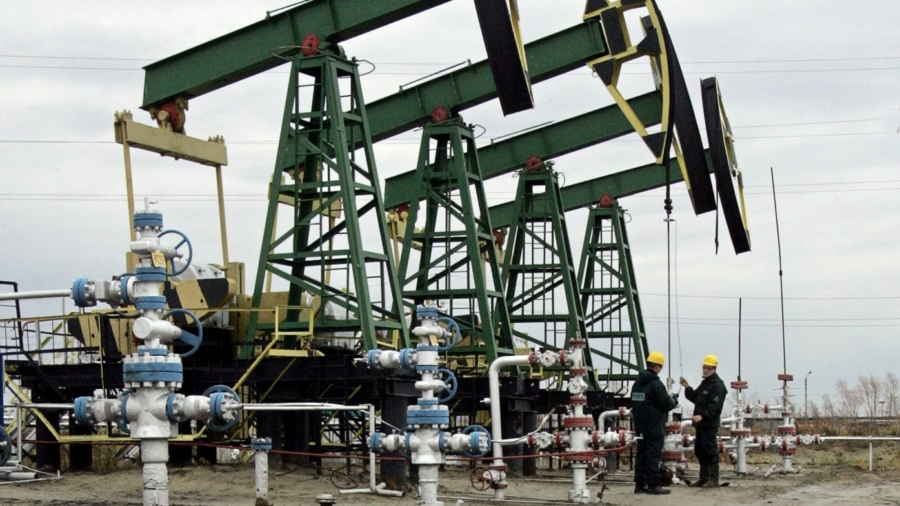Russia will cut oil production by 500,000 barrels per day (bpd) next month, amounting to about 5 percent of its output, Deputy Prime Minister Alexander Novak said on Friday, following through on the Kremlin’s previous threats made in response to recent Western sanctions such as proposed price caps on Russian oil.
“Today, we are selling the entire volume of our oil output. But, as we have said before, we are not going to sell oil to those who directly or indirectly adhere to the ‘price cap’ principles,” Novak said, according to the Russian state-run news platform Tass.
“In this regard, Russia will voluntarily cut production by 500,000 barrels per day in March. This will help restore market relations,” he continued.
Novak emphasized that the cut in production will only apply to oil, not gas condensate, and will be calculated “from real production levels,” not from Russia’s quota under the current OPEC+ output agreements, which were set in November 2022 at 10.478 million bpd, Tass reported.
Russia’s announcement caused crude prices to surge “shortly after the announcement,” Business Insider reported, “with Brent crude briefly rising 2.5 percent, to $86.60 a barrel,” until it finally stabilized at $85.64 a barrel.
According to CNBC, OPEC+ producers must come to a consensus on output policy, and that consensus binds members to their set targets. But the group has previously allowed “voluntary gestures that honor the spirit of the existing output agreements.”
Russia has been running at maximum capacity, with production recorded at about 10.9 million bpd in January, The Wall Street Journal reported, which was just slightly less than the 11 million bpd it was producing in February 2022, when it launched its invasion of Ukraine.
The Recent Sanctions That Incited the Kremlin’s Response
On Dec. 5, the European Union (EU), the Group of Seven (G7)—Canada, France, Germany, Italy, Japan, the United Kingdom, and the United States—and Australia agreed to a $60 per barrel price cap on Russian crude oil, a move which would ban Western companies from insuring, financing, or shipping Russian oil unless it is sold below $60 per barrel, The Wall Street Journal reported.
The sanctions were made in response to the Ukraine invasion and aimed to cut Russia’s oil revenues while also keeping Russian oil, critical to the world’s oil supply, on the market, and, thus, stabilize prices.
President Vladimir Putin had previously called the move “stupid,” and then threatened some sort of future retaliation if any such agreements were imposed.
“This is an absolutely stupid solution,” Putin said when the West first proposed a cap back in September 2022. “If anyone tries to implement this, it won’t lead to anything good for those who make this decision,” Tass reported.
“If any decisions of a political nature are made … we simply will not comply with them,” he added.
After the sanctions were imposed in December, Putin responded with a threat of his own.
“As for our reaction, I have already said that we simply will not sell to those countries that make such decisions,” Putin said on Dec. 9, according to Reuters, adding, “We will think, maybe, even about a possible, if necessary … reduction in production.”
The agreement caused “Moscow’s oil and gas revenue to nosedive by 50 percent,” Business Insider reported.
Then on Feb. 5, another expansion of sanctions came into force, which included a cap of Russian diesel at $100 a barrel and fuel oil at $45 a barrel. These arrived on the same day that an EU-imposed ban and price cap on Russian refined products went into effect, according to The Wall Street Journal.
Simone Tagliapietra, a senior fellow at the Brussels-based think-tank Bruegel, opined that Russia’s move to cut oil production is an “early sign that Russia might try to weaponize oil supplies,” Politico reported.

